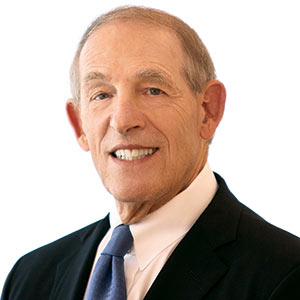There are two main ingredients to running a business effectively and successfully. First is having the big picture of whom the company serves, and knowing how to meet or exceed their expectations. This includes providing the right products or services when, where and at the price the customer wants to pay. The second is execution, i.e., doing those things that make the company better than the competition by consistently saying what the company is going to do and then doing it.
Today, every business is faced with challenges, many of which have never been experienced previously. The economy is teetering on a recession, inflation has soared to the highest level in 40 years, and we’re still dealing with the effects of an almost three-year pandemic (although fortunately, the tide seems to have turned, and COVID deaths dramatically have been reduced with the advent of a vaccine and improved treatments). Moreover, the war in Ukraine and Russia’s brutal aggression have put the world on edge, raising concerns about an escalating conflict and even heretofore unmentioned use of nuclear weapons. Meanwhile, the workplace is trying to decide where and how people will work. Is it at home or the office, or a combination of both? The list seems endless but let us not forget the upcoming presidential 2024 election, sure to raise consumer concerns about who wins and what will happen after that.
No matter how successful a company has been, every organization must reassess all aspects of its business. With our cloudy economic outlook, companies are compelled to be prepared for uncertainty, not knowing when the next disruptive shoe may drop.
This is where the big picture becomes job No. 1 for senior leadership. Short, intermediate, and long-term objectives must be reassessed to be sure they are affordable and doable in this unfamiliar environment. Nothing can be off-limits, and there can be no sacred cows.
The second prong of an organization’s success is execution. That means sweating the details and ensuring that the company consistently produces as promised. Making things happen correctly is the job of operators, typically in middle management. Of course, leadership must keep an eye on day-to-day efforts, but they cannot micromanage, particularly when attempting to figure out the big picture. More so than ever, under today’s circumstances, the operators must be given the responsibility, authority and resources, including funding, to manage as they have never managed before.
Some have said that businesses have had it so good for so long that they might not be able to rise to the occasion demanded by the economy and a world in a tailspin. If history is a guide, that is not so. We pulled through the great depression of the 1930s; we prevailed over two world wars and too many other conflicts; we overcame the effects of the cataclysmic World Trade Center terrorist attack; and we not only beat the recession of 2007/2009, we as a country also experienced soaring prosperity, including a stock market that just wouldn’t quit. Businesses of all shapes and sizes learn from the past to build for the future.
Today’s lesson is for prudence, focusing on what we do best and postponing the rest. As it has been said many times, “This too shall pass.” ●
Visit Michael Feuer’s website www.TipsFromTheTop.info to learn more about his columns, watch videos and purchase his books, “The Benevolent Dictator” and “Tips From The Top.”

